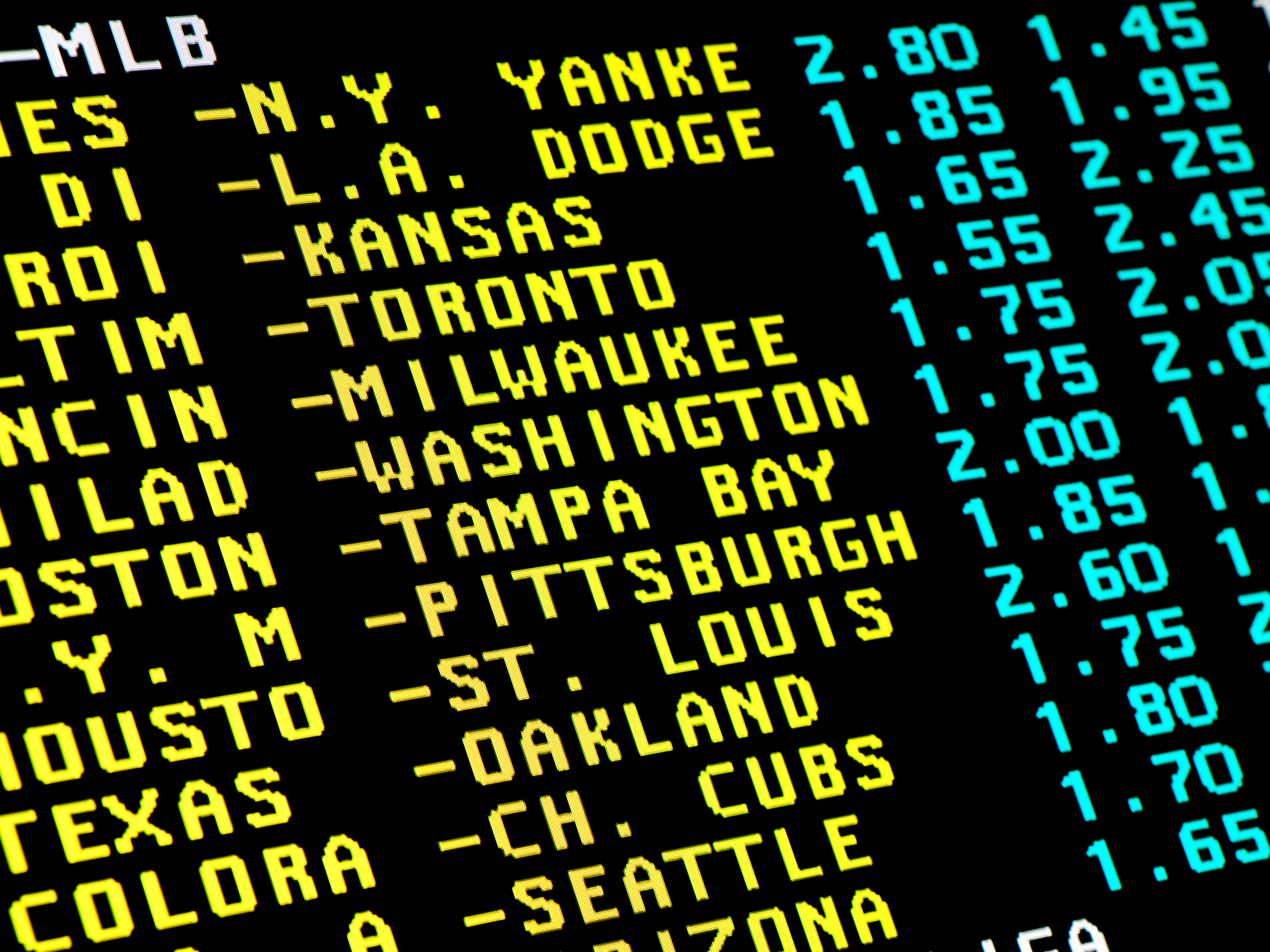YOU CAN BET ON IT
When professional athletes gamble, it’s a slippery slope
Professional athletes shouldn’t face such severe consequences for sports gambling.
Professional athletes shouldn’t face such severe consequences for sports gambling.


In 1919, famous White Sox outfielder ‘Shoeless’ Joe Jackson, along with seven of his teammates, saw his career come to an end after throwing the World Series against the Cincinnati Reds for $5,000. Due to this, he was denied access to the Baseball Hall of Fame despite being one of the best players of his generation.
In 1998, Northwestern basketball stars Kenneth Dion Lee and Dewey Williams were indicted on charges of point shaving for accepting money in return for making sure the Wildcats didn’t cover the point spread.
Both of these consequences were justifiable. In both cases, the athletes gambled or helped others gamble against their own team which completely goes against the integrity of their sport.
However, what’s the policy for those athletes that gamble on their own team, or games that they are not involved with at all? What are their consequences? Surely, not as severe right?
Wrong. They face a similar fate as Jackson, Lee and Williams. One of the most famous and controversial instances of all time surrounds MLB all-time hit leader Pete Rose. Rose, who was a 17-time All-Star and 3-time World Champion, had his Hall of Fame dreams come crashing down after he was banned from Major League Baseball for life in 1989 for gambling on his own team several times during the 1987 season.
Pete Rose should be inducted into the Baseball Hall of Fame. Plain and simple. Not only because he is one of the greatest to ever play the game, but also because players shouldn’t be penalized for betting on themselves and their own team.
The athlete gambling debate has recently come to the forefront as ten NFL players, including star wide receiver Calvin Ridley, have been suspended for gambling in the past two years. Ridley was gambling on his own team just like Rose and as a result, received a whole season suspension.
This does not make sense to me.
In 2010, after breaking the NFL’s personal conduct policy and being accused of sexual assault by two women, former star Pittsburgh Steelers QB Ben Roethlisberger only received a four-game suspension. In 2020, Cleveland Browns running back Kareem Hunt only served an eight-game suspension after a video surfaced of him kicking and assaulting a woman.
Both these athletes faced much softer punishments than Ridley despite committing worse offenses. Even more outrageous, Lions receiver Jameson Williams received a six-game suspension solely for placing a bet at the Lions team facility. The bet placed wasn’t even on the NFL.
According to the Gambling Policy for NFL Personnel 2022, “All NFL Personnel are prohibited from placing, soliciting or facilitating any bet, whether directly or through a third party, on any NFL game, practice or other event (e.g., Draft or Combine). This includes betting on game outcome, statistics, score, performance of any individual participant, ‘futures’, or any other kind of ‘proposition bet’ in any way related to the NFL.
The policy also states that “NFL Personnel shall not engage in any form of Gambling in any club or League facility or venue (e.g., practice facility, stadium, team hotel, Draft or other League or club event); on any League or club charter or other transport.”
Based on this policy, Ridley and Williams deserved to be suspended. They clearly broke the rules stated. However, there is an immense need for a policy change.
Sports gambling is legal in 37 states and that number is increasing rapidly each year. If athletes aren’t doing anything suspicious and trying to rig or throw games, I don’t see the problem of them betting on themselves or other games that they are not involved in. Employees can purchase stock in their own company, so why can’t an athlete buy “stock” in their own team?
At the very least, the punishment for athletes who sports gamble should be greatly reduced. What lesson is the NFL teaching kids if Kareem Hunt and Jameson Williams received similar game suspensions? That assaulting and kicking a woman is as acceptable as gambling on a different sport in a legal state while at the team facility?
Additionally, many athletes are not even made aware of the exact gambling policy. “I don’t even know what the rule is, or when the rule changed or the fine print on what you can or can’t gamble on,” an NFL veteran said.
There’s a lot that needs to be changed.
Unfortunately, I’m not Roger Goodell, the commissioner of the National Football League so there is not much I can do about this. With the NFL season right around the corner, all I can do is sit and hope. Hope that Goodell makes some policy changes so that one of my favorite players doesn’t get suspended for the season for merely betting on themself or another game they are not involved in like millions of other Americans do every day.
Joshua Sacher is a sophomore writing about the growing sports gambling phenomenon in his column “You Can Bet On It.” He is also a sports editor at the Daily Trojan.
This site uses cookies. By continuing to browse the site, you are agreeing to our use of cookies.
Accept settingsDo Not AcceptWe may request cookies to be set on your device. We use cookies to let us know when you visit our websites, how you interact with us, to enrich your user experience, and to customize your relationship with our website.
Click on the different category headings to find out more. You can also change some of your preferences. Note that blocking some types of cookies may impact your experience on our websites and the services we are able to offer.
These cookies are strictly necessary to provide you with services available through our website and to use some of its features.
Because these cookies are strictly necessary to deliver the website, refusing them will have impact how our site functions. You always can block or delete cookies by changing your browser settings and force blocking all cookies on this website. But this will always prompt you to accept/refuse cookies when revisiting our site.
We fully respect if you want to refuse cookies but to avoid asking you again and again kindly allow us to store a cookie for that. You are free to opt out any time or opt in for other cookies to get a better experience. If you refuse cookies we will remove all set cookies in our domain.
We provide you with a list of stored cookies on your computer in our domain so you can check what we stored. Due to security reasons we are not able to show or modify cookies from other domains. You can check these in your browser security settings.
These cookies collect information that is used either in aggregate form to help us understand how our website is being used or how effective our marketing campaigns are, or to help us customize our website and application for you in order to enhance your experience.
If you do not want that we track your visit to our site you can disable tracking in your browser here:
We also use different external services like Google Webfonts, Google Maps, and external Video providers. Since these providers may collect personal data like your IP address we allow you to block them here. Please be aware that this might heavily reduce the functionality and appearance of our site. Changes will take effect once you reload the page.
Google Webfont Settings:
Google Map Settings:
Google reCaptcha Settings:
Vimeo and Youtube video embeds:
The following cookies are also needed - You can choose if you want to allow them:
